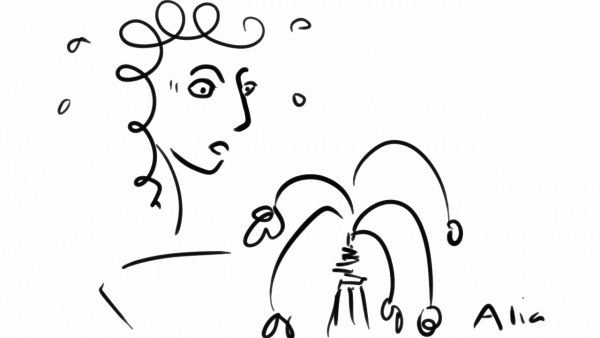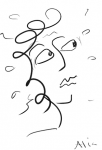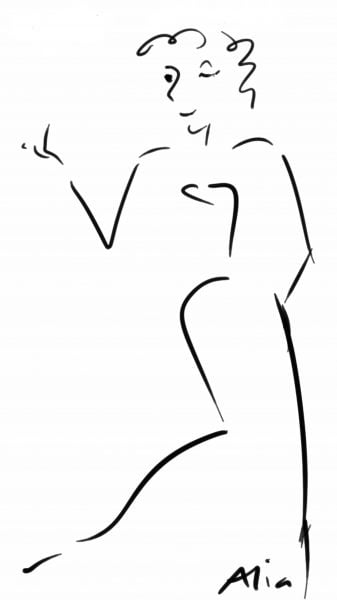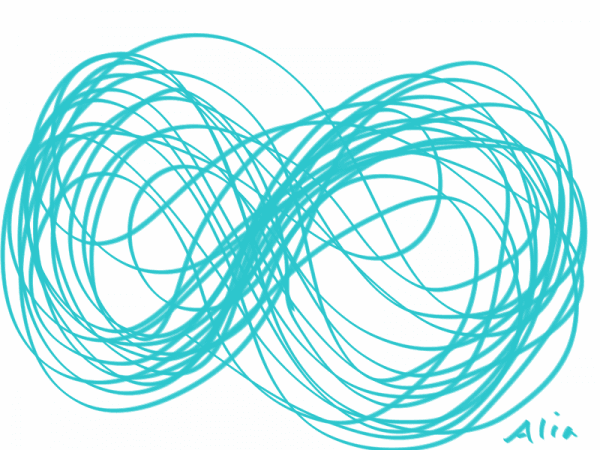A gal I knew was raised to believe that she mustn’t handle flowers when she had her period, because the flowers would die. I’m not kidding. People used to believe this.
I was shocked to meet someone for whom this had once been a truth. We met in the first belly dance class I ever took, so she had finally figured out there was something wrong with that picture (and it is an easy test, after all).
Sadly, many of us are raised with equally outdated beliefs and models
And we never even think to question them.
One of the more dysfunctional models with which I was raised was the dismissal of anything done well, and a focus on what was wrong. For example, growing up, I never heard, “Oh, honey, four As. Nice work!” Nope. All I got was, “What the hell is this B?” So this is how I talked to myself, too.
My self-critique was vicious. I couldn’t watch a video of my own dance without wanting to die. I never saw the good of what I did. I felt anxious and insecure.
I see that same focus on what’s wrong in many of my dance friends and students. We have been brainwashed into thinking that we have to be perfect or stay home. Women especially are tyrannized by the expectation of perfection. That’s just a myth designed to keep us powerless. When we focus our critique on what’s wrong, we rob ourselves of confidence and accomplishment. When we focus on what’s right, we win.
Switching to what’s right builds confidence
In child-rearing, the productive model is to tell the kids what to do. Instead of saying NO all the time, you can say YES. Instead of “Don’t touch that!” you redirect the kid to what is okay for them to play with. This was a big shift. When I started teaching writing at the college level, I educated myself about how to teach, how to do critique. Wow. I learned a LOT. It changed me as a teacher and as a human being.
Focus on student success
I have been a teacher at some level since the early 80s, working first for Headstart and later as a Speech Language Assistant in the public school system. I now teach English Composition at the college level (and have for over 20 years), so I have to do a lot of critique.
It was a hard job to change this in myself, but it mattered a lot. I was a LOT nicer to my students than to myself, but I still told them what was wrong with their work instead of what was right. It didn’t work very well–for me or them.
The main thing I learned is to emphasize everything students did right. I even developed rubrics with all the tasks so I could find more things to compliment. And I went one step further. When we discussed what needed improvement, I framed it as an action step—something to do, instead of taking them to task for mistakes.
For a dance example, to a student with good presence but sloppy, floppy hands, I’d say, “I love your shining presence. I’d love to see you bring that energy into your hands. What if you try this?” And I’d demonstrate. This worked. It worked with the writers and the dancers. It worked for me, too.
Yes, there is a lot of crappy dance out there
But is shaming dancers for their mistakes going to make it any better? What if we try another way? When dancers enjoy the pleasure of the movement and the moment, when they give themselves to the the dance, when they are relaxed enough to enjoy the process, they feel more confident–and their technique often improves organically.
Nothing is perfect. Everything has room to develop. This life is is about becoming, not being. We learn, we grow, we change. Otherwise, we are dead. We copy to learn, we take classes, study others, and practice. But there comes a time when we must hop out on the branch, flap our wings, launch ourselves, and fly. Taking such risks benefits us in so many ways, some understood and others yet to come.
Will our first efforts suck?
Of course they will! Growth and learning include failure and revision. That’s how we learn—through trial and error, persistence, feedback, and trying again. Embracing process, identifying and correcting errors, this is key to improvement. Shame is not.
Let’s all learn how to reinforce the good, critique wisely, and model Eastern dance principles.
And what is the most important of these?
The most important thing is the feeling!
Look for that first. Everything else can wait.
Love,
Alia







No comment yet, add your voice below!